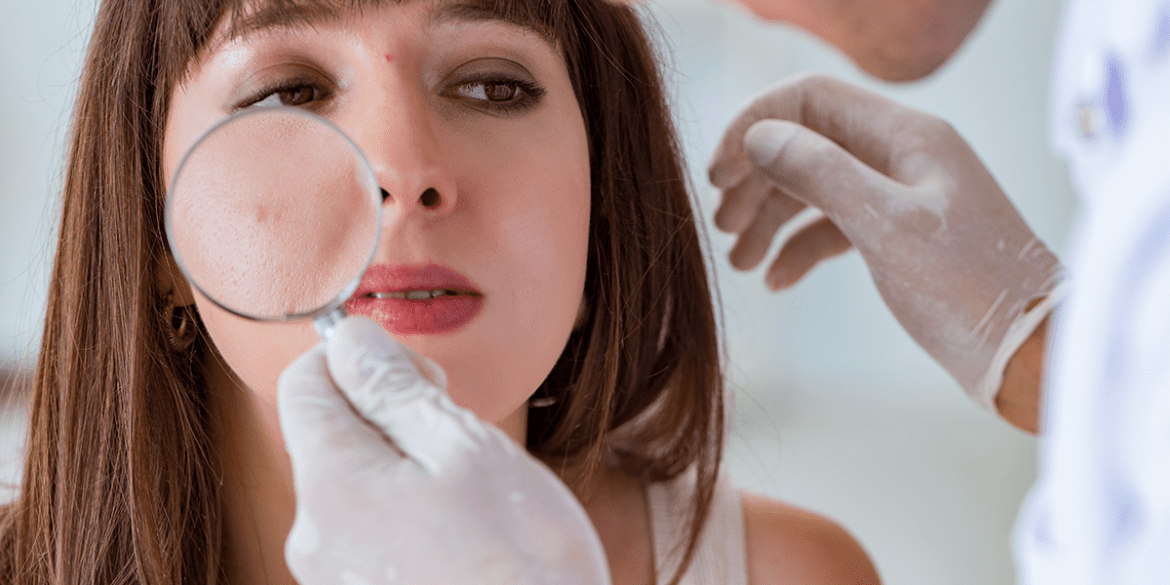June is acne awareness month. Acne impacts almost everyone at some time in their life or another. But the truth is that acne is more than just skin deep.
Here to answer some common questions about acne are our dedicated providers at our Apex Skin in Concord, OH who offer a 360 degree approach to completely clearing acne.
Keep reading to learn what Dr. Alexa Stecker, Ringaile Sirvaitis, CNP, Katie Novotny, CNP, and Kaylee O’Donnell, RN, Aesthetic Nurse are faced with every day when it comes to acne.
What are the different types of acne?
While nearly everyone suffers from acne at some time in their life. It’s why we created a comprehensive Acne Clinic here at Apex Skin. The types of acne they struggle with, however, can be quite different (and therefore, are treated differently, but we’ll get to that below).
Dr. Stecker explains, “In general, acne starts as an open or closed comedone, also known as whiteheads or blackheads. These can progress to papules (pimples) or pustules. This is termed inflammatory acne. Deeper pimples, known as cyst, can also occur, termed ‘cystic acne’. All forms of acne can cause scarring or post-inflammatory hyperpigmentation.”
Where can acne be on the body?
“Acne can appear anywhere on the body, but most often develops in the areas that have a high concentration of sebaceous (oil) glands, such as face, chest, upper back and shoulders,” Ringaile Sirvaitis, CNP says.
“Hair follicles and sebaceous glands are connected. Oil produced by sebaceous glands travels through the hair follicle to moisturize the skin.” But this can be problematic, Ringaile explains, “When oil, bacteria and dead skin cells block a hair follicle, it results in a pimple. Less common areas like the underarms, buttocks or the groin can develop folliculitis, which is acne- like bumps, caused by inflammation of hair follicles.”
How does a dermatologist treat acne?
There are many ways people can care for their acne at home, but the truth is that most people don’t know which treatments are right for their skin, and can actually contribute to causing even worse acne.
Dr. Stecker says, “Dermatologists are experts in acne and treat looking at the whole picture. A combination of topical medical grade skin-care products, topical prescription medications, and sometimes oral medications are used. Dermatologists are well-trained in the pathogenesis of acne, and use specific medications designed to target different factors that contribute to the development of acne.”
She further explains our method of treating acne, “At Apex, we offer a unique 360 approach to treating acne, that is individualized to each patient. This includes medical grade skin-care, prescriptions, in addition to medical aesthetics to help with scarring and skin tone.”
What are some of the most common prescriptions used?
“There are many different ways to treat acne and not one thing works for everyone,” Katie Novotny, CNP says.
“It is usually the combination of topical antibiotics (BPO, Clindamycin, Sulfa), topical retinoids (Tazorac, Retin-A, Adapalene) and oral antibiotics (Doxycycline, Minocycline, Seysara) that works best. If the standard treatments are not helping, then we may consider finding the underlying cause of acne and treating that with either Aldactone or Accutane.”
Is there anything that can help speed up the process of clearing acne?
“Unfortunately, acne can take time to clear and heal,” Kaylee O’Donnell, RN, Aesthetic Nurse weighs in on her experience dealing with a patients’ acne.
“A consistent skincare regimen with sunscreen is important when treating and clearing acne. In-office treatments to help with acne breakouts include the Diamond Glow Facial, Chemical Peels, and Microneedling.”
Additional facial treatments can also help get rid of and prevent acne, which is a dual approach many need to keep acne at bay. “The Diamond Glow is a medical-grade facial that uses a 3 in 1 technology; extracts, exfoliates, and infuses, leaving the skin brighter, healthier, and more even in tone, with zero downtime. We have multiple chemical peels (Salicylic Acid Peel, Perfect Derma Peel, etc.) that can help brighten, clear, and improve the overall pigmentation of the skin with about a week of downtime.”
Additionally, Kaylee adds, “Microneedling is a rejuvenating treatment used for any acne scars left behind, with about a week of downtime.”
What do you wish people knew/understood about acne?
“Acne can affect all aspects of a patient’s life,”Dr. Stecker acknowledges. “I have so many patients that avoid social events because of their acne and treating it can be life-changing. I encourage seeking help from a dermatologist early, so we can guide you in a treatment plan that is proven to help. Acne is one of my favorite conditions to treat since I can see the improvement not only in the skin-but often in personalities and outlooks!”
You don’t have to live with acne. Schedule a consultation with us today and check out our Acne store for our 360 degree approach to skincare.



